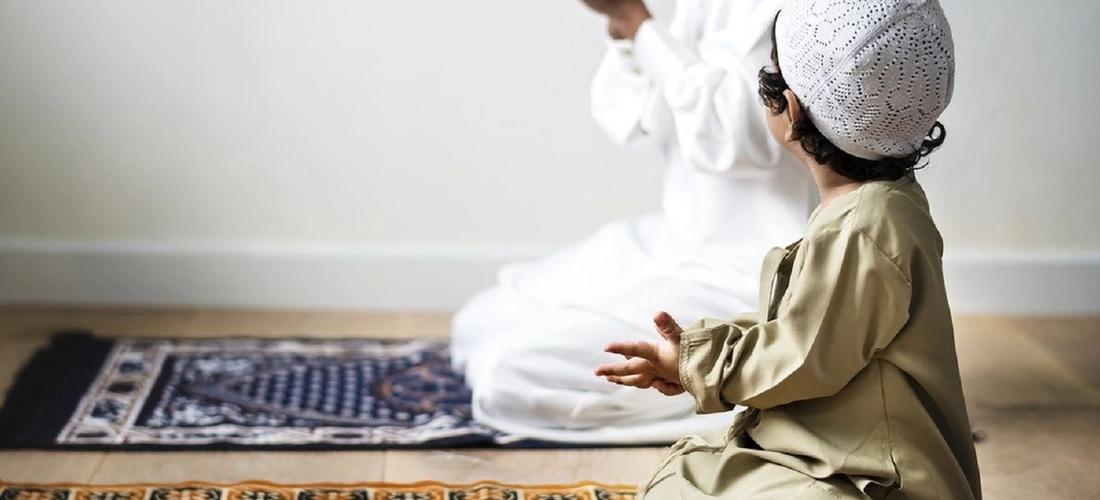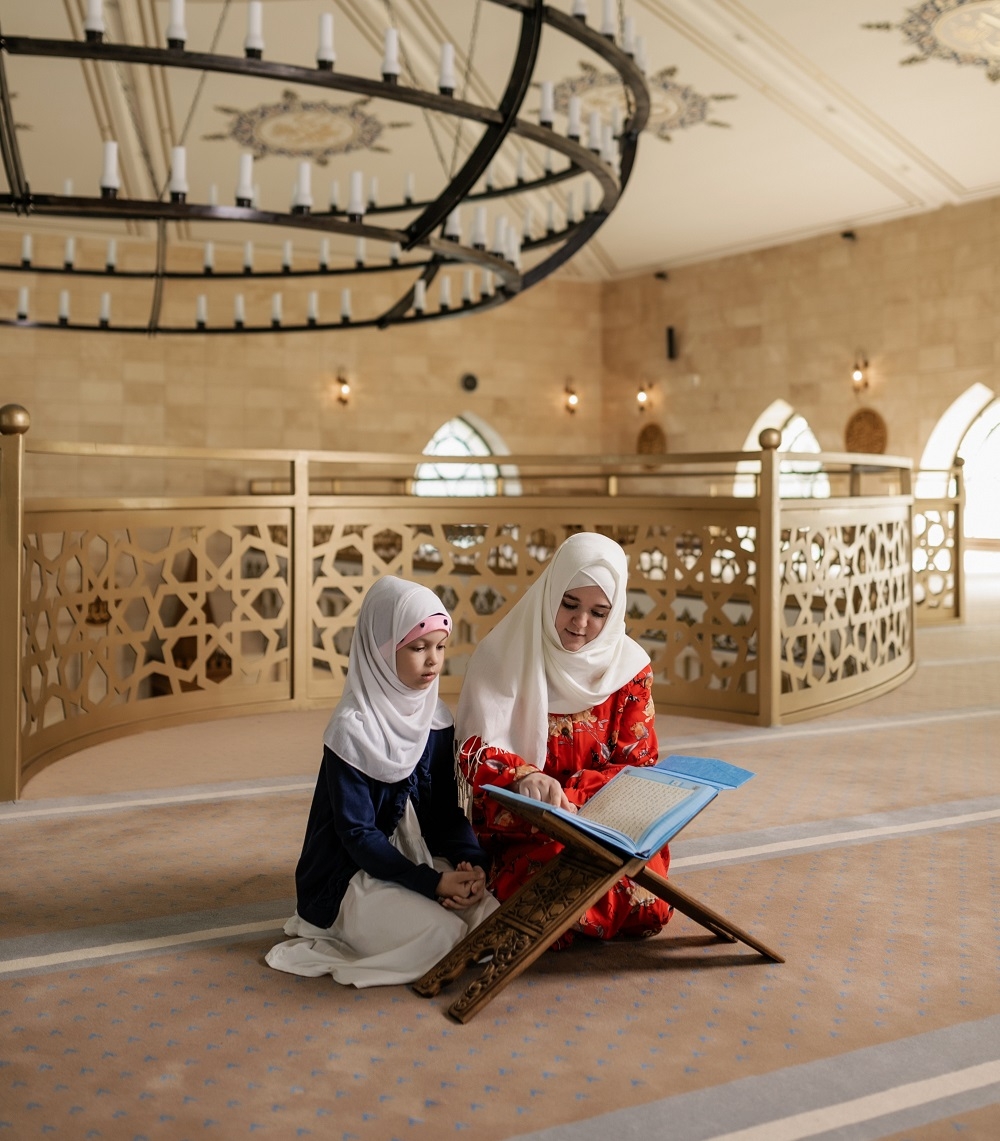How Much of My Kids' (Islamic) Education is on Me? How Much Can I Outsource? 4 Things to Know
Faith
|
Sep 15, 2023
|
6 MIN READ

As a young mom raising a family of my own, with all the technology and abundance of both Islamic and educational resources readily available at my fingertips, I often find myself looking back at the relative simplicity of my childhood and admiring the way my parents raised my siblings and I. With limited resources and their own creativity to rely on, they instilled the love of Islam, our homeland and family morals in such a way that I strive to do the same with my own children.
And maybe (like many of us) I look at my childhood with rose-colored glasses, but indeed, it’s remarkable how my parents raised us relying mainly upon themselves to teach us our faith, our morals and our values.
Don’t get me wrong, I am thankful and in awe of all the online and local options (for teaching Islam and whatever it is you want your kids to learn) to choose from depending on your family schedule and lifestyle. From Sunday school programs, online parenting courses, local masajid programming, online Arabic, Quran and Islamic Studies lessons, Islamic story books, games, Quran audio players, memorizing applications, and even interactive prayer mats – the list is endless. And, it can easily get overwhelming!
Where do you begin? What do you register for? What materials are truly necessary and beneficial ? When I find myself caught up in all the noise, I take a step back and ask myself “What did mama do?”
How much of my children’s education is on me and my relationship with them, and how much is it ok for me to outsource? Here are four things to consider and reflect on:
1. It’s hard not to compare yourself and your children to those around you. But don't do it. Getting together with friends and hearing about what they are doing for their family and kids, the latest program they are in or extra curricular activity – it’s hard not to want to do the same for your family in order to maximize their experiences and give them new opportunities to grow and learn from.

Image source: Pexels
Are my kids missing out? Am I not doing what’s right for them by keeping it low-key and at home on Friday night instead of attending that masjid program for kids? Remember that what works for other families may not work for you, and that is okay.
Being involved in your children’s lives can take on many forms, whether it is delegating those tasks to others by signing them up for activities and masjid youth groups, seeking aid from resources such as books, games, and electronic devices, or simply going old school and just having heartfelt conversations with your children over dinner or on the drive home. Maybe hanging out with them with no agenda in a way that strengthens togetherness and your parental relationship.
There are ways to strike a parental balance when it comes to incorporating the resources at hand while also simplifying the way in which we are involved in our children's lives. This is how I attempt to honor the type of parenting I was raised with and that I find myself striving to model many years later.
2. Maintain an open communication style to gain your child’s trust. This is easy when our children are in their early years. They are born to depend on us, and to them we are their only source of safety, comfort and trust. The key is to continue building that relationship as they become more independent and venture out into the real world.
Once your child enters the school-age years and they start their first day of school, they quickly learn that other individuals around them can be trusted. Other people start to hold influence over them, and that’s not a bad thing. Teachers, staff at school and even their peers soon become people in whom they look up to and confide in.
This can all be a great way for your kids to grow. But what brings it all together is making the home a safe space to discuss things your children see at school or outside of the home. This should become a foundational building block in your relationship.

Image source: Pexels
As parents, it’s important for me and my husband to be the source of information and direction in our children’s lives especially during their early years. Being sure to always have open conversations about various topics within their age and remind them that they can always come to you with questions about things they hear and see outside of the home has been an integral part of our parenting style.
I can’t expect my teenage child to come to me in his or her time of struggle and curiosity if I don’t pave the path for that at a young age. I love taking advantage of our car rides, dinner time and bedtime as windows in our day that I can check in with my kids. I also am sure to tell them about my day as a way of making them feel important to me while also modeling the behavior I am asking of them. I engage in silliness with them and also make sure to give them the space they need to approach me.
3. Instilling love for Islam and good morals starts from the home. My mom always said, “The person who is well behaved and knows his Lord learned this at home.” Our home is our home base. While Sunday schools and masjid halaqas are a great asset and compliment what we teach our kids at home, it's important for parents to ensure that we are just as involved with our children’s Islamic and moral upbringing at home.
We should not completely rely on outside resources. Looking back at my childhood, I remember my parents would organically weave in Islamic lessons, Quran memorization and morals in our day-to-day life. After all Islam is a way of life, and there is always an opportunity to teach and learn through our interactions as a family.
For example, this can look like ensuring we pray at least one prayer together. For my family that is Maghreb. Because my daughter is approaching her seventh birthday, my husband and I have been making it a priority to embed Maghreb prayer as a family in our daily bedtime routine. We also make sure we share a meal together everyday. Sitting down as a family for dinner (and breakfast on the weekends) is foundational to our family. Having the children help with food preparations and setting the table while sharing how our day went while we eat is valuable time that can not be replaced.

Image source: Pexels
During school drop off, my husband and I take advantage of the car ride and review our children’s surahs that they are working on. During bedtime, I have made it a habit for us as a family to read one non-Islamic book that still embodies mannerisms and main ideas that align with our faith, and one Islamic or Arabic book that opens conversations and topics about Islam.
These include books that cover Prophet stories, family and community relationships, and of course, books on our holidays and celebrations. This has been the perfect gateway to conversations that come up throughout our day.
4. Listen to your parental instincts and don’t compare yourself with other families. This is a reminder to myself before anyone else. I am absolutely guilty of getting caught up with what my friends and other families are doing for their children and wanting to do the same in an effort to provide my kids with the best opportunities and experiences.
This is when my spouse comes in. He reminds me that life is not a one-size-fits-all mold. It is also not feasible nor economical to always want to purchase or sign up for the newest resource or service. Each family is unique in their dynamic, schedule and priorities.
While we all want the best for our children, that doesn’t always look the same across the board and that is okay. In fact that is the beauty of parenting. There are so many different ways to go about it, And, remember that every child is also different in the way in which they receive information. Some children thrive on personal time and a more relaxed environment. Others need a busy schedule and rigid routine. You know your child more than anyone, trust your maternal (and paternal) instinct!
Do you ever look back at your childhood and wonder how your parents molded you into the person you are today with such limited resources? Are you someone who models some of the same parenting style as your own parents, or do you prefer to parent differently while utilizing the resources and services available in our communities and online? Share your experiences below, we would love to hear from you!
Subscribe to be the first to know about new product releases, styling ideas and more.
What products are you interested in?


